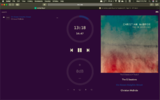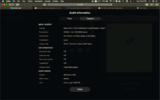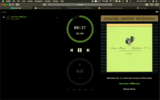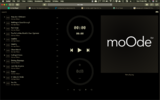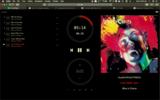@MikeyFresh - wondering if you have any advice on good wireless USB network adapters for Raspberry Pi? I've been having all sorts of reliability problems with the two dongles I've tried with my Pi4CM setup. Before I shell out the long green for an electrician to put a CAT6 drop in my living room, I'd like to see if it's simply bad choices. The ones I've tried:
LOTEKOO
TP-Link
If not, no worries, but I figured I'd ask the expert here. Reliability seemed to get worse when I made the leap to Moode 7.x.x
Hmmm, I'm not sure what would change with the move to Moode 7.x.x given it is a USB adapter, however anything goes there I guess as it relates to the Linux kernel.
A chip thats supposed to work is the Ralink 5370, and that is what's supposed to be in that LOTEKOO device you have, however I've seen many references over the years to silent hardware revisions to these kinds of devices where the chip is changed, but never noted. Then people buy them thinking they are getting a known compatible unit, and that's just no longer the case.
I'm not sure what the command is to get the unit to report on itself, but there should be a way to do that and find out if that LOTEKOO is in fact using the chip specified or not.
This same issue exists with dongles that work (or not) with older Blu-ray players such as Oppo, that run older Linux kernel versions.
The Moode Readme says this:
WIFI ADAPTERS THAT ARE REPORTED TO SUPPORT AP MODE
- Comfast CF-912AC dual-band WiFi adapter
- For all other adapters consult the manufacturer
Now granted thats for using a dongle in lieu of the RPi's onboard WiFi just to get the initial setup/config done, so I'm not really sure that applies for all usage. I do have the Comfast CF-912AC and it works, or at least it did whenever I actually used it a million years ago (with RPi 3B), so I wouldn't know with Moode 7.x.x but I can try it again, I still have it.
I did also recently buy another
generic WiFi adapter said to use a "Mideatek (sp.) RT5370N" chipset, it is supposed to be compatible with both Raspberry Pi and Oppo Blu-ray players, but I haven't actually tried it yet. I should do so, as the Amazon return window closes on June 13th. Not a big spend, but if it doesn't work I'd have no real reason to keep it.



